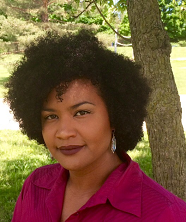ASCEND

Dr. Elizabeth Rodriguez is Core Lab Manager for ASCEND. She earned her Ph.D. in Neuroscience from the University of Michigan in the winter of 2017. In graduate school, Dr. Rodriguez worked under the guidance of Dr. Liberzon. Using single-prolonged stress (SPS) as a model of post-traumatic stress disorder (PTSD), she aimed to elucidate the neuro-mechanisms underlying the symptomatology for this and other psychiatric disorders to develop more effective treatments. PTSD is a prime example of how affective neuroscience is redefining psychiatric illnesses as a symptomatic expression of cellular/molecular dysfunctions in specific brain circuits. Specifically for her thesis, she used the SPS model of PTSD to examine potential cellular mechanisms that could contribute to contextual processing deficits, and subsequently to deficient fear extinction retention in this disorder. She produced evidence that reductions in adult hippocampal neurogenesis could contribute to abnormalities in context-dependent learning processes in PTSD, showing that established extinction retention deficits in the SPS model may be due to disrupted neurogenesis and can be rescued by a neurogenesis-focused intervention.
You can read more about Dr. Rodriguez's in a University of Michigan Student Spotlight feature:
http://neuroscience.med.umich.edu/spotlight/elizabeth-rodriguez
Before graduate school, she conducted research for over two years at Columbia University in Dr. Rae Silver's neuro-endocrinology laboratory. One of her projects assessed suprachiasmatic nucleus activation by a light-pulse when mice were aroused during their normal resting time. She also mapped distribution of neuro-immune mast cells during brain development in baseline conditions.
Dr. Rodriguez graduated from Hunter College (CUNY) with a B.A. in psychology. While at Hunter, she was a scholar in the Minority Access to Research and Career (MARC) and the Minority Biomedical Research Support (MBRS) programs. Under the sponsorship of these programs, she worked in Cheryl Harding's neuro-endocrinology laboratory studying song-learning and sexually dimorphic behaviors in zebra finches. While a MARC/MBRS scholar, Dr. Rodriguez also participated twice in the Summer Program for Under-Represented Students at Columbia University. Dr. Rodriguez has a rich and diverse history of biological research experiences, some of which were made possible by undergraduate research programs for underrepresented minorities in STEM.
Contact Information
ASCEND Center for Biomedical Research
Gillian Beth Silver, MPH, CPH
Program Manager
Morgan State University
Portage Avenue Campus, Room 110
1700 E Cold Spring Lane
Baltimore, MD 21251
P: 443-885-3541
E: gillian.silver@morgan.edu
Contact Information
ASCEND Center for Biomedical Research
Gillian Beth Silver, MPH, CPH
Program Manager
Morgan State University
Portage Avenue Campus, Room 110
1700 E Cold Spring Lane
Baltimore, MD 21251
P: 443-885-3541
E: gillian.silver@morgan.edu

